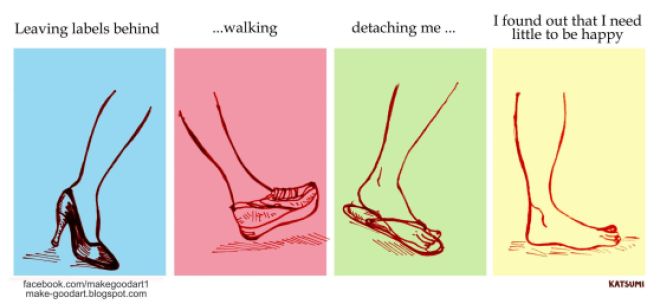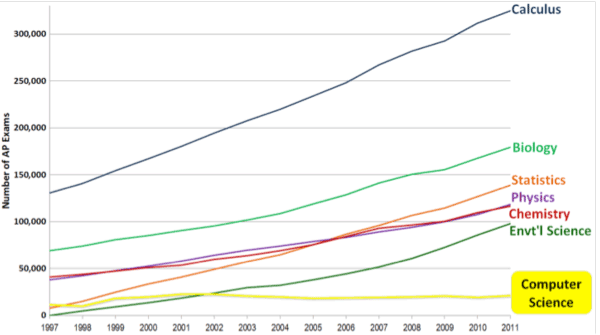Recently, I attended Kan and Minae’s wedding. Kan is a musician, an artist, my younger brother, and my best friend. The night before the wedding in Hiroshima, we went out to a casual Hiroshima-style okonomiyaki dinner. At the dinner, Kan said, referring to his upcoming wedding ceremony, “In context, it’s really not about the ceremony. I am much more about doing the little things daily to build up the relationship.” And this is the reason why I am confident that Kan and Minae will have a happy life together.
Most of us that grew up in today’s society were taught that our life is about our achievements. We are constantly asked “what do you want to be?” as if what occupation we pick is what determines the quality and impact of our lives. Societal forces pressure us to stay on some “path to success” which usually involves getting good grades, getting a college degree from a well-known university, making lots of money, and raising a happy family. I see nothing inherently wrong in any of these things, but I do see a disturbing trend where so many people seek them as if they are the things that will give their lives meaning and happiness.
I challenge all of us to shift this attitude a bit. Rather than focusing our attention on these milestones, we should instead seek meaning in the little things that we do daily. Instead of setting up goals that are centered around outcomes (such as “I wish to land the job of my dreams” or “I wish to find a partner and be happy together”), we should set up goals that are growth-oriented (such as “I will study daily to gain more skills and improve my chance of landing the job” or “I will work on improving the quality of my relationship with others by listening more and communicating better”).
The benefits of this change in attitude are two-fold. First, our emotional well-being will not be bound to outcomes that are not fully in our control, and second, regardless of the results, we will be happy because we are seeking meaning in our growth, not the final outcome. And as an added bonus, although this is the least important part, we will end up with better outcomes anyway, because more opportunities open up when we are focused on growth.
With this new attitude, everyday feels like a celebration, because we will make progress, however small, every single day.
With that, I wish you a happy new year. Today would be a good day to get started. Invest this day to your personal growth. I also highly recommend reading Kan’s 2017 mantra below:
A 2017 Mantra
by Kan Adachi
What does it take for an artist to do “Good Work”?
Doing good work is not about making an impact. It is not about making a living, gaining fame, or any other social metric. In fact, the quality of work that one does is largely determined by how frequently they intentionally show up to work. We like to think that a painter sits down in front of a blank canvas, is eventually struck with inspiration, and proceeds to arrive at a masterpiece through a series of awe inspiring strokes.
However, more than 90% of what we see in terms of quality in art actually comes from repetitive, mundane daily practice. Behind every stroke of paint on a masterpiece are hundreds of thousands of strokes that aided in developing the technique and taste of a master. A painter is good at what they do because they do it a lot. The other ~10% that contributes to their work quality can come from a myriad of sources like inspiration and talent.
On a similar note, what I love about sports is that an athlete’s talent seems to be masked by the fact that they work hard day-in and day-out. The outisde world knows that if an athlete does not continue to practice, they will not live on as titans on their respective sports forever. That, to me, is a realistic understanding of what it takes to “be good”.
Because the skills relevant to less concrete activities like the visual arts, music, and teaching cannot be measured in a competitive fashion, the general narrative about how to become good at those things seems more muddied. I frequently hear phrases like “You are so talented!”, or “I wish I could play like you!” in relation to the aforementioned skills.
But I don’t hear people say things like “I wish I could run as fast as him”, or “I wish I could throw the football like that quarterback.” (At least I don’t hear that often.) The reason for this is because inherent in that statement is a requirement to practice.
Why should it be any different for any other skill?
The reality is that humans are largely creatures of habit, muscle memory, and repetition and what we do on a daily basis has a huge impact on our performance in regards to any skill. The fact that some activities’ necessary skill sets cannot be measured does not change that reality.
In order to do good work, one must make a commitment to showing up on a regularly basis.
6 Rules for Resolution Setting
It’s the new year, and I want to explore an avenue of resolution setting that is hopefully a refreshing paradigm to the typical New Years resolutions that individuals simply fail to achieve.
Here are the six ground rules and their reasons for my resolutions this year:
1. It must be commitment based with a specified frequency.
The biggest problem I have in achieving my goals is staying disciplined and vigilant towards achieving that goal. A commitment centric approach is essential to goal setting because the energy is focused on showing up instead of the final prize. This combats the desire to only pursue the goal when I am motivated to do so.
2. It must include a time of day as specific as possible
By including specific details of when the task will be done, it is easier to make it routine. Less resistance for doing the activity will only help me achieve consistency.
3. It must include a measurable metric to assess completion of the activity
This gives me a non-negotiable, “black-or-white” measurement for whether I lived up to the commitment or not. The less wiggle room there is for kind-of doing the activity, the less likely I will cheat myself by counting days that should not be counted.
4. It must include a time frame for the commitment that is longer than a month; At the end of the time frame, I will reassess whether the habit should be continued or not.
Not all habits and activities are right to pursue in the long-run. Everyone is different and I have to be able to accept when something doesn’t jive well with me so that I can focus on trying a new habit that may be more beneficial. This also has the added benefit of allowing me to focus on developing discipline instead of being distracted by whether a habit is right for me. I can delay that assessment until the time frame is over when it is more appropriate to assess the overall quality of my goal.
5. It must list an accountability partner who I will check in with every week
Having someone hold me accountable is an effective tactic to keeping myself in check. However, telling someone I will do something can be counter productive because there is no real accountability metric in my intentions. Instead, the goal with this requirement is to inform them of the action steps that will be taken should something go awry. Which leads me to:
6. It must include a back-up plan should I miss a commitment
I am not perfectly disciplined and developing a new habit is rather difficult. A mistake people frequently make when setting New Years resolutions is that they only focus on what to do right that they don’t have a contingency plan and realize that they are screwed because they messed up their resolution. A back-up plan is perfect for reinforcing that I committed for X number of days and I will do my best until I hit that time frame.
Here’s an example resolution following this format:
- I will walk every morning for 15 minutes as the first thing I do after waking up.
- I will track my daily progress and share the details with [someone] on a weekly basis over [email, Facebook messenger].
- I will be committed for 60 days, at which point I will reassess whether this activity is something I should continue or not.
- If I miss a day, I will set an alarm clock reminder for myself on the next day to be sure not to miss two days.
- If I miss two days consecutively, I will notify my accountability partner and let them know that I am still committed to continue doing the activity for the time frame I specified.
- If I miss three days consecutively, I will set up a time to discuss with my accountability partner explaining the reasons for missing.
- For every subsequent consecutive day missed, I will continue to notify them of the reason for missing via [email, messenger].
- Once I am back on track, I will notify the partner that they will not hear from me besides the weekly check-ins unless I am off track again.
Doing “good work” is a lot of work; it takes a little bit of effort, at a frequent pace, over a long period of time. This is news most people don’t want to hear, but I want to fully embrace this challenge in 2017. I believe in my heart that it is productive.
I encourage you to take the same amount of diligence and effort to start off the year right.
Happy New Year!

